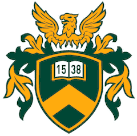Mercenary uprisings (1349, 1350) in Apulia during the dynastic war of the Angevins
in: Mercenaries and Crusaders, ed. Attila Bárány, Debrecen, HUN-REN-DE Középkori Magyarország és Közép-Európa Hadtörténete Kutatócsoport, 2024, pp. 191-214.
Virágh, Ágnes
The study predominantly traces the evaluation of mercenaries, with a specific emphasis on the Trecento, during which they surfaced in a more methodically structured manner, converging into meticulously organised enterprises, manifesting throughout Italy in the configuration of societas. Beyond the aforementioned scope, the study also addresses the inquiry into the extent to which diverse collectives that came into contact with mercenaries were capable of asserting their agency. Additionally, the study delves into the degree of accomplishment attained by the mercenaries as public actors themselves in the realization of their objectives. While a comprehensive examination of the subject necessitates further textual analysis, this paper presents the initial phase of a study and delves more extensively into two instances of mercenary uprisings: the Aversan (1349) and the Barlettan uprisings (1350). In the analysis of source texts, I employ the close reading method, focusing on individual passages and chronicles of specific authors, to uncover perceptions formed about mercenaries. I resort to alternative sources for explanatory purposes only when necessary. This approach enables us to trace the opinions of the southern Italians concerning the mercenary uprisings.


